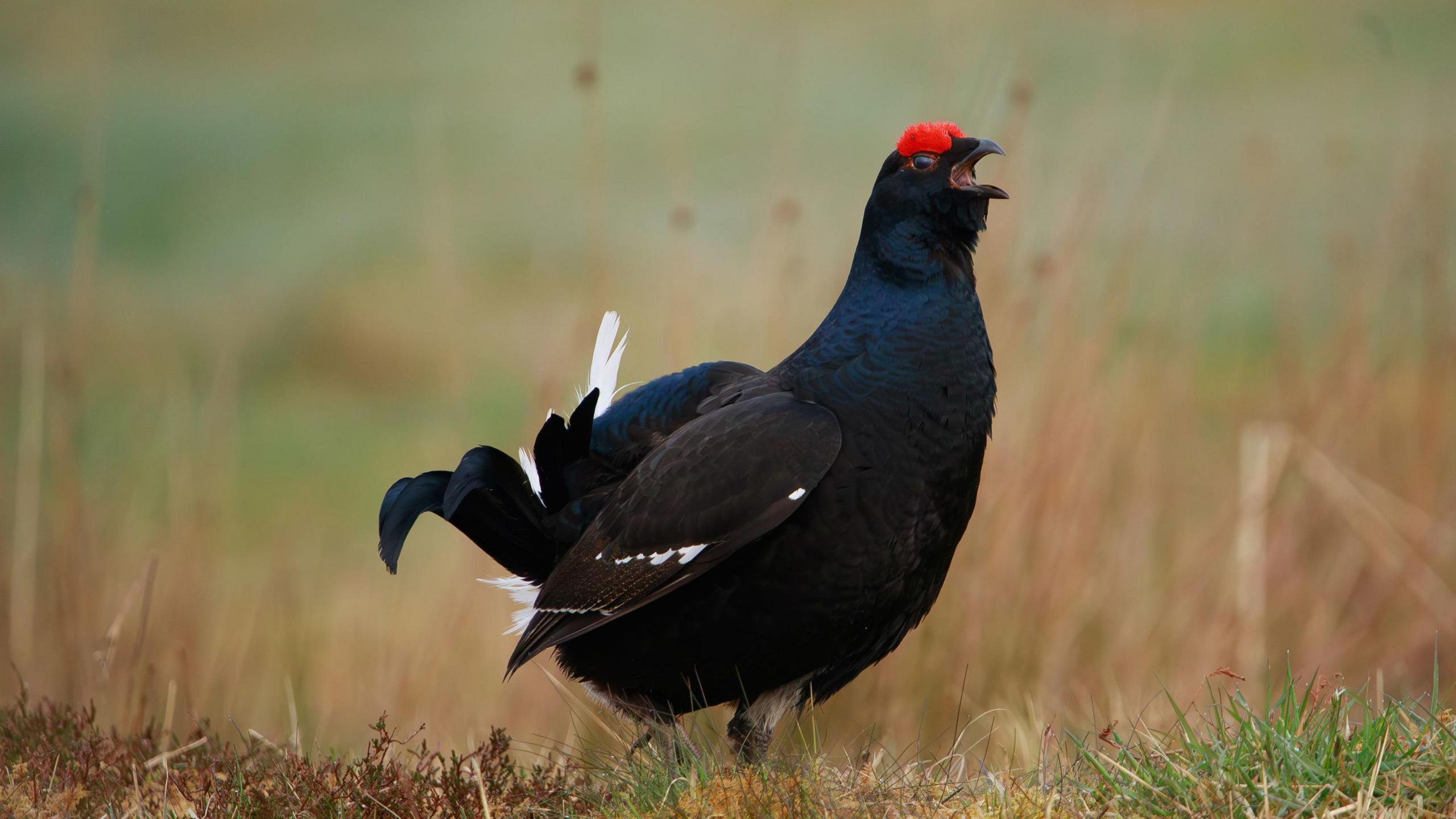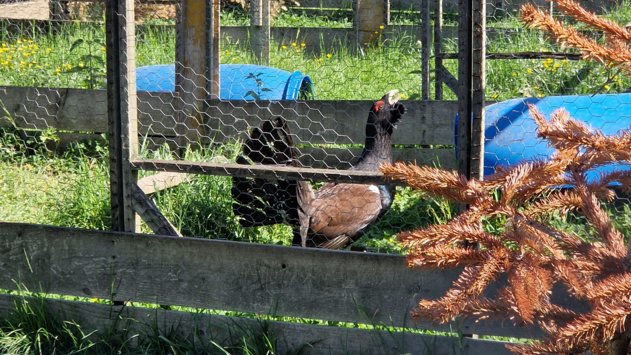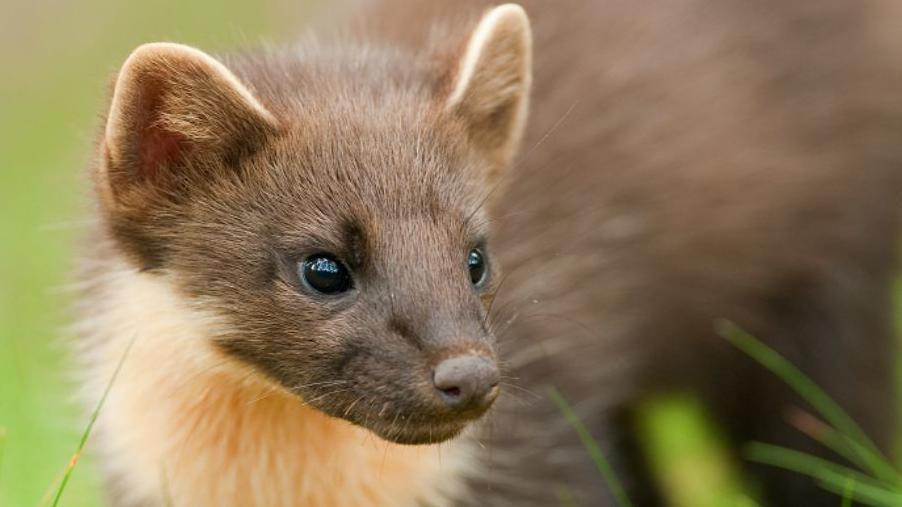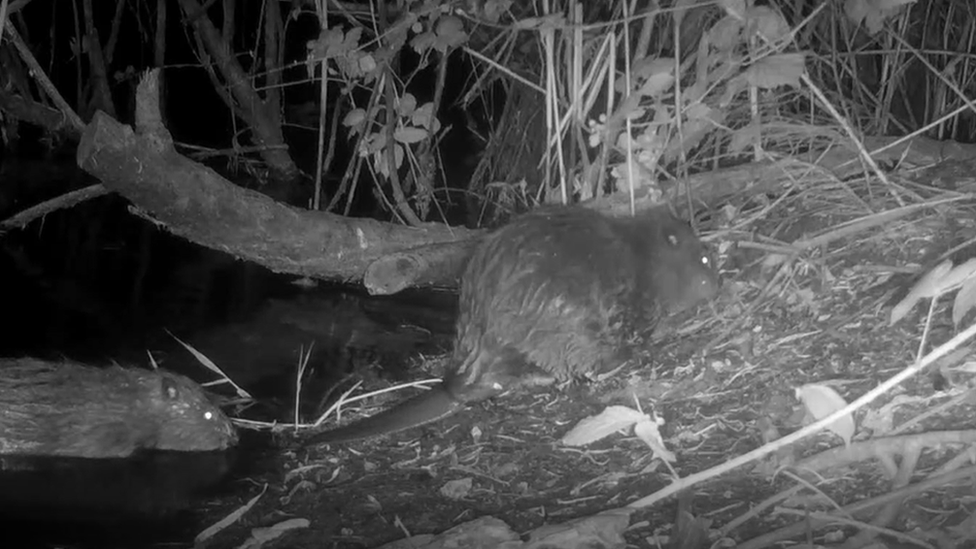Bid to bring black grouse back to Peak District

Black grouse with their distinctive red wattle can boost the ecosystems of UK moorland
- Published
A partnership is being formed for a conservation project to reintroduce an endangered bird back to the hills of the Peak District.
Black grouse are on the Royal Society for the Protection of Birds (RSPB)'s endangered species red list, as populations have been declining in the UK for decades due to threats such as habitat loss and intensive land management.
It is hoped that the work led by Derbyshire Wildlife Trust could see the black, white and red birds brought back to the uplands by 2030.
Dave Savage, landscape recovery manager with the trust, visited Wales this month to visit a project where birds are bred to be released into the wild.
Mr Savage said the birds could play an "important role" in the ecosystem of the Peak District's moors.
He said they "act as natural grazers, pruning moorland plants like heather and bilberry" and eat "herbs like sorrel, buttercup and marigold found in unimproved pastures" and will "gorge" on cotton grass.
They also eat berries, which helps to spread seeds in the autumn.
'Grounded in hope'
But to make a black grouse population viable, work to create the conditions needed has to be carried out in unison by councils, businesses, landowners, land managers and other organisations.
The trust said it was early days in the project.
But Mr Savage said a partnership was being established "that's evidence-led, ecologically sound, and grounded in hope" to support the birds.

Black grouse and capercaillie are bred to be released into the wild at a project in Wales
The plan supports the first Local Nature Recovery Strategy for Derby and Derbyshire, which highlights the opportunities to establish the likes of black grouse, pine martens, red-backed shrike and beavers, and help struggling species such as adder, common toads, Leisler's bats, water voles and white-clawed crayfish.
Launching the wider strategy earlier this year, Derbyshire's then environment lead councillor Carolyn Renwick said nature "needs our help" and that "we need to take action now to protect our environment for tomorrow".
Mr Savage said in terms of black grouse, populations of more than 100 must be established, to make the colonies resilient and to encourage birds to migrate to other areas to breed.
He said: "With the right conditions and community support, we believe this iconic bird can once again be part of our thriving upland landscapes."
Get in touch
Tell us which stories we should cover in Derby
Follow BBC Derby on Facebook, external, on X, external, or on Instagram, external. Send your story ideas to eastmidsnews@bbc.co.uk, external or via WhatsApp, external on 0808 100 2210.
Related topics
- Published12 May

- Published14 March

- Published14 July 2022
